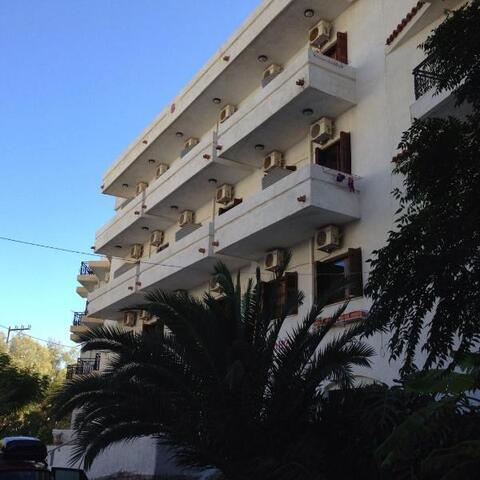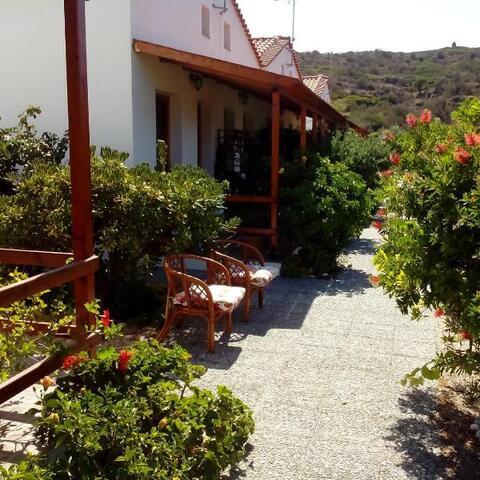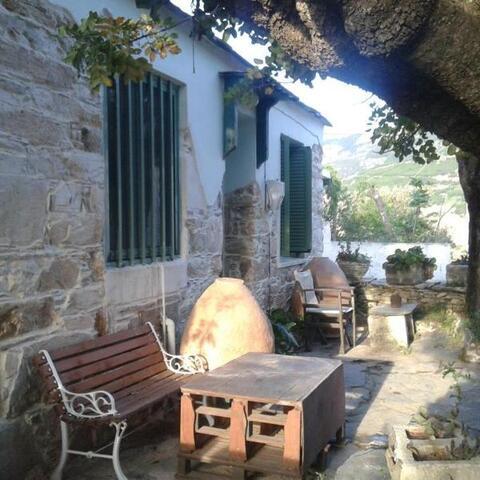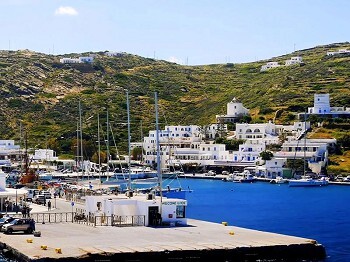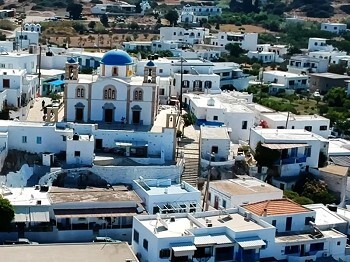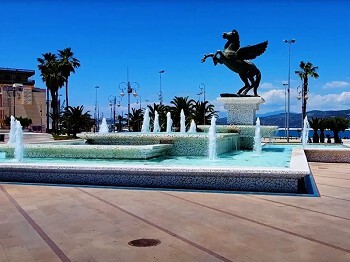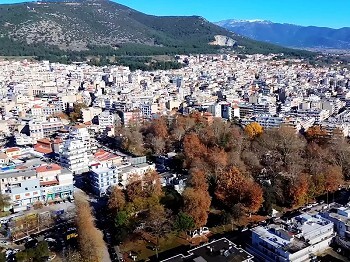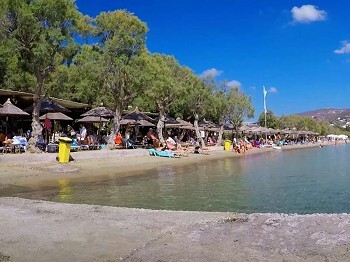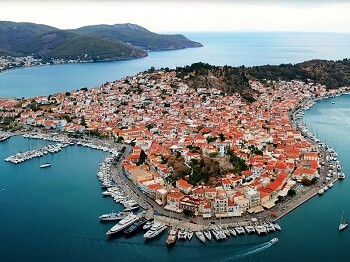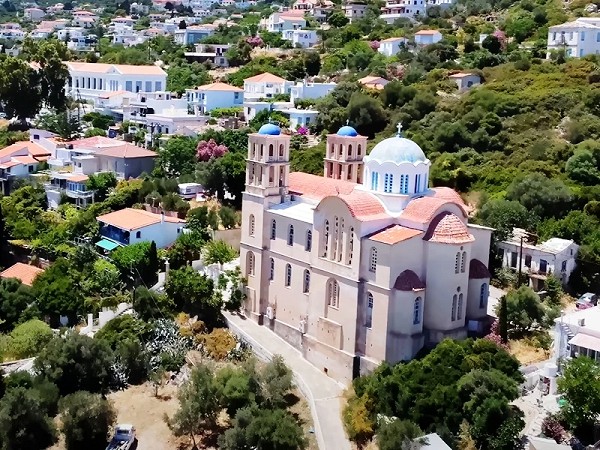
Nestled in the heart of the Aegean Sea, Icaria Island is a destination that offers more than just stunning beaches and breathtaking landscapes. This Greek island is steeped in history, with numerous sites that tell tales of ancient civilizations, medieval fortresses, and more. For history enthusiasts and curious travelers alike, here's a guide to the must-visit historical sites in Icaria Island.
We suggest for your stay:
Still Looking for the Perfect Stay?
1. Drakano Tower: A Glimpse into Hellenistic Military Architecture
Located near the village of Faros, the Drakano Tower is one of the best-preserved Hellenistic towers in the Aegean. Built in the 4th century BC, this impressive structure served as a military outpost. Standing tall against the backdrop of the sea, the tower offers visitors a chance to step back in time and explore the defensive strategies of ancient Greece. The panoramic Views from the top are a bonus for those who make the climb.
2. The Ancient City of Oenoe: Discovering Icaria's Classical Past
The Ruins of the ancient city of Oenoe, situated near the village of Kampos, provide a fascinating insight into the island's classical period. Oenoe was one of the major cities of ancient Icaria, thriving during the 6th century BC. Visitors can wander through remnants of ancient walls, residential structures, and public buildings. The nearby Archaeological Museum of Kampos houses Artifacts excavated from the site, offering a comprehensive look at the city's past.
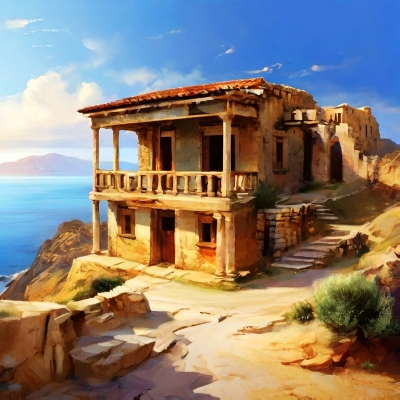
3. The Castle of Koskina: A Medieval Fortress with Stunning Views
Perched on a hilltop overlooking the Aegean Sea, the Castle of Koskina is a medieval fortress that Dates back to the 10th century AD. Built to protect the island from pirate attacks, this castle offers a mix of history and Natural beauty. The hike to the top is rewarded with panoramic Views of the island and the sea. Inside the castle, visitors can explore the Remains of fortifications and get a sense of medieval life on Icaria.
4. Monastery of Mounte: A Spiritual and Historical Haven
The Monastery of Mounte, also known as Monastery of Evangelistria, is one of the most important religious sites on Icaria. Founded in the 18th century, this Monastery is located near the village of Christos Raches. Its serene Setting and well-preserved Architecture make it a peaceful retreat for visitors. The monastery's church, adorned with beautiful Frescoes, and its Collection of religious Artifacts offer a glimpse into the island's spiritual Heritage.
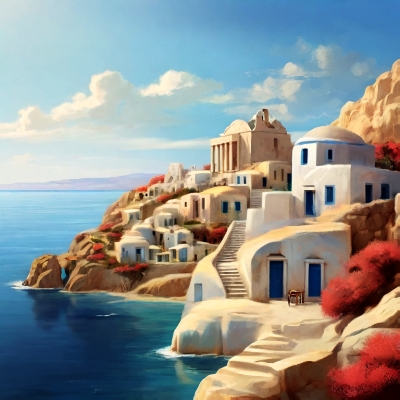
5. Temple of Artemis Tauropolos: Exploring Ancient Worship Practices
Located in the area of Nas, the Temple of Artemis Tauropolos is a significant archaeological site that Dates back to the 6th century BC. This Temple was dedicated to Artemis, the goddess of hunting and wilderness. The site is not only important for its historical value but also for its picturesque location by the sea. Visitors can explore the Temple Ruins and imagine the ancient rituals that once took place here, while also enjoying the beautiful Nas Beach.
6. Archaeological Museum of Agios Kirykos: A Treasure Trove of Icaria's History
For those who want to delve deeper into the island's history, The Archaeological Museum of Agios Kirykos is a must-visit. Located in the island's capital, this museum houses a vast Collection of Artifacts from various periods of Icaria's history, including Pottery, Sculptures, and tools. The Exhibits provide a comprehensive overview of the island's cultural evolution from prehistoric times to the Byzantine era.
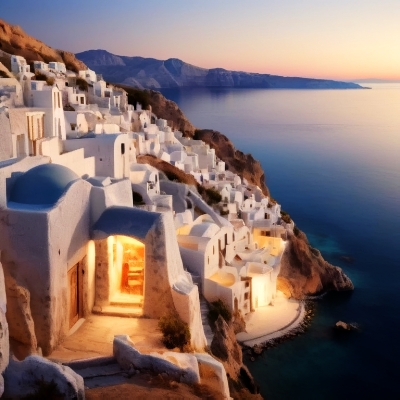
7. Kampos Archaeological Site: Unearthing the Mycenaean Era
The Kampos Archaeological Site, situated in the village of the same name, is a treasure trove of Mycenaean Relics. Excavations have revealed a Mycenaean necropolis, complete with tombs and burial Artifacts dating back to the 14th century BC. This site offers a rare glimpse into the island's early history and its connections to the broader Mycenaean civilization. The serene Setting of Kampos adds to the allure of exploring these ancient Ruins.
8. The House of Icarus: Mythology Meets History
Icaria is named after the mythical figure Icarus, who is said to have fallen into the sea near the island. While the exact location of Icarus's fall Remains a mystery, the House of Icarus in the village of Kambos is a tribute to this legend. This site features a statue of Icarus and provides information about the myth and its Significance to the island's identity. It's a great spot for mythology enthusiasts and those interested in the cultural lore of Icaria.

9. Castle of Fanari: Witness to Byzantine and Ottoman Eras
The Castle of Fanari, located near the village of the same name, is a site that has witnessed the island's transition through different historical eras. Originally built during the Byzantine period, the castle was later modified by the Venetians and Ottomans. Today, its Ruins offer a fascinating mix of architectural styles and historical layers. The castle's strategic location provides sweeping Views of the surrounding area, making it a picturesque spot for history buffs and photographers alike.
10. Chalaris River Gorge: Nature and History Intertwined
While primarily known for its Natural beauty, the Chalaris River Gorge also has Historical significance. The area around the gorge is dotted with ancient settlements and Ruins, offering a unique blend of nature and history. Hiking through the gorge, visitors can discover old mills, bridges, and remnants of ancient paths that once connected the island's communities. It's an ideal destination for those who enjoy combining outdoor adventures with historical Exploration.
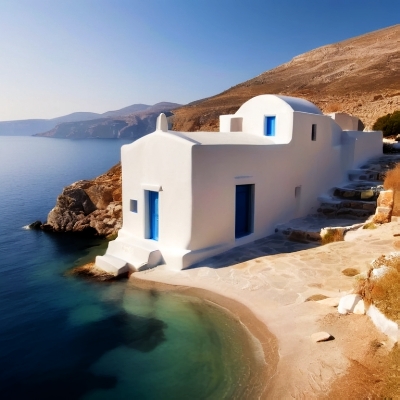
Conclusion
Icaria Island is a treasure trove of historical sites that offer a captivating journey through time. From ancient temples and classical Ruins to medieval fortresses and Monasteries, each site has a story to tell. Whether you're a history enthusiast or a casual traveler, exploring these historical Landmarks will enrich your visit to Icaria and deepen your appreciation for its rich cultural Heritage. So, pack your bags, set out on a historical adventure, and let Icaria's past unfold before your eyes.

